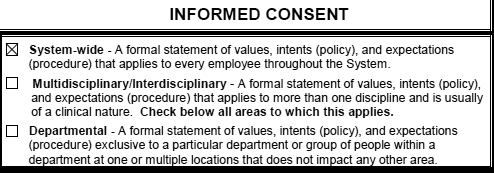Improper treatment is a form of medical malpractice which involves a patient’s condition being mishandled by medical professionals. This may involve providing incorrect treatments for a specific condition, treatments which carry unnecessary risk, or using unapproved procedures as a treatment option.
When someone suffers an injury resulting from improper treatment, it’s important to seek legal help immediately due to a statute of limitations on their case.
Improper Treatment – Do I Have a Case?
 In order to determine if you have a valid legal claim against a medical professional, several elements must be present in your potential case.
In order to determine if you have a valid legal claim against a medical professional, several elements must be present in your potential case.
1. There has to be a formal physician-patient relationship.
This means that you requested and paid for the doctor’s services. Also, the physician consented to be hired to treat you.
2. There was a violation of the standard of care
The law recognizes that medical entities have a standard of acceptable treatment under like or similar circumstances. The legal term is the “standard of care”.
Patients have the right to expect care within these standards. Malpractice may be proven if evidence shows that the standard of care was not met.
3. An injury resulted from negligence
A medical malpractice lawsuit requires proof that the injury would only occur in the event of negligence. Violation of the standard of care isn’t enough to sue for malpractice.
4. The Injury Caused Significant Damages
The case is only valid if the patient can demonstrate significant damage caused by the injury. For example, the patient must show the injury resulted in:
- Disability
- Lost income
- Excessive pain
- Suffering and hardship
- Significant medical bills both following the incident and, in the future
Discussing your case with an attorney will provide insight into the validity of your claim.
Common Medical Malpractice Lawsuits
There are several common reasons that people sue for malpractice.
Failure to diagnose. You must prove that a competent doctor in similar circumstances would have made a different diagnosis. And that this doctor would have provided treatment leading to a better outcome.
Improper treatment. You must show that a competent doctor in similar situations would have provided different treatment leading to a better outcome. A case may claim the treating physician chose proper treatment but administered it incorrectly.
Failure to inform the patient of known risks. Physicians must abide by the “duty of informed consent”. This means he/she must tell the patient about possible risks related to treatments.
Following a patient injury, it’s important to determine if they knew about the risks. The claim may be valid if a lack of knowledge about risks affected their consent. If the patient knew all the risks, would they have made a different decision?
Have You Experienced Improper Treatment?
If you feel that medical treatment caused you harm, contact a lawyer to discuss your case. The attorney will evaluate if your case warrants a malpractice lawsuit. They will provide legal advice and guide you through the process.
Di Pietro Partners work to protect your legal rights. We work to ensure you have the highest level of legal representation. Contact us today to get answers to your questions.
